aNewDomain 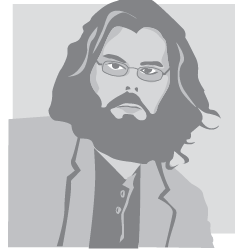 — Eleanor Roosevelt famously said, “Nobody can make you feel inferior without your consent.”
— Eleanor Roosevelt famously said, “Nobody can make you feel inferior without your consent.”
A little inferiority we could take as humility. Humiliation I can’t much endorse, but humility is a most valuable trait. In the modern age, we aren’t sophisticated enough for that actual quote, so we go with this derivation:
Nobody can hurt you unless you let them.”
Much more simplistic and more easily questioned.
I don’t know karate, for instance. Anyone who wants to can hurt me. If we’re talking emotional hurt, how much less defended, more vulnerable are we to the emotional hurts of the world?
You’re fired, but don’t take it personally.”
Why shouldn’t I take it personally? You’re rewarding my years of faithful service with a pink slip.
We also say this:
Pain is inevitable; suffering is optional.”
Beats me who said it first, but it’s way too shallow a thought for any self-respecting existentialist. The implication here is you needn’t suffer unless you want to; that suffering is bad, pointless, meaningless and to be avoided.
I think you misunderstand suffering, dear Anonymous Quotester.
Here’s a counterpoint, and this one has a face and a name: Martin Luther King, Jr. Now I’m against deifying the man because when we do that we come to the conclusion you had to be a god to do what he did. You don’t. You just have to give a shit. But he wasn’t wrong when he said:
Unearned suffering is redemptive.”
Toiling under the yoke of oppression can lead you to greater empathy and, for King, greater closeness to God. This greater empathy and purity of purpose leads one to love one’s enemies, and that love makes one great indeed. To suffer without reason is not to suffer without purpose. King suggests we turn our suffering into a crucible and, in that crucible, burn away hate and aggression.
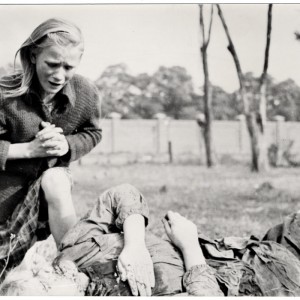
Victor Frankl has similar ideas. He suggests we not engage with pain for the sake of pain, but that finding meaning in suffering can lead us to better lives than finding no meaning in a life of non-suffering. He should know; he survived the camps.
When the opportunity to suffer comes along, we have a choice, Frankl says. We can run from it or embrace it as a job of work. He said:
There is so much suffering to get through.”
We can transform ourselves not through positive regard and accurate empathy and optimal environments but through deprivation, through the very absence of the higher-order needs Abraham Maslow theorized were necessary for self-actualization.
I remember a story about a Buddhist monk, a Western traveler, and an earthquake. Apropos, perhaps, in light of Nepal’s recent troubles with tectonic shifts. The monk and the traveler were drinking tea above a tea house. The earth trembled. People ran, panicking, into the street but the monk just stayed where he was, calmly sipping tea.
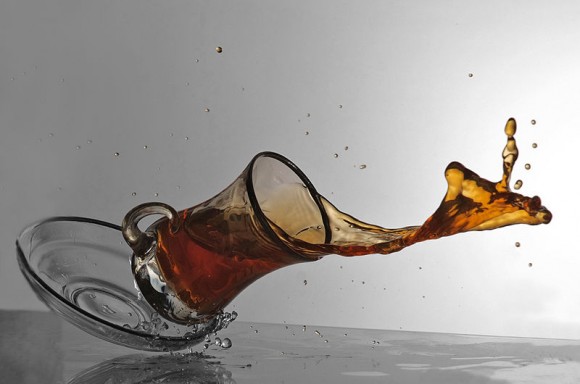
He explained to the puzzled Westerner (presumably later, after the English fellow had run screaming into the street and eventually came back when the building didn’t fall down) that he was not at all attached to living. He did not panic because he felt no fear. Go with the flow.
But sometimes the flow is injustice, or loss, or hate. Sometimes the flow is war or murder. Sometimes the flow is intolerance, greed.
Sometimes you just have to give a shit.
Isn’t it better to care than to be completely detached? To worry not that you might die, but that you might die meaninglessly, for nothing, or for an evil purpose? Shouldn’t you sometimes put on your “fuck the flow” T-Shirt and go stand in front of a tank someplace?
I think you should.
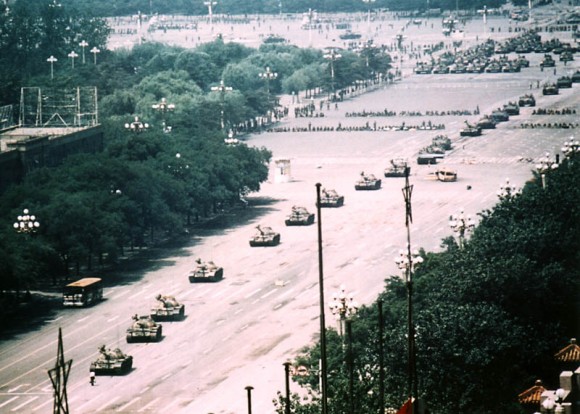
Suffering can mean we care about something and that something we care about is at risk. Our values are being assaulted. You’ll have to decide which of your values are worth dying for, but undoubtedly some of them are. I would gladly die for peace, for example.
That care is at the heart of suffering and non-coincidentally at the heart of Buddhist non-attachment. Compassion without attachment is the heart of Buddhist love: understand the other, do not judge them, be a person who can be of service, and do not break into pieces when you fail to be of help. You have the next life or the next or the next to help others escape the wheel of suffering.
For the rest of us, caring means pain. What is it that is worth suffering for? You pulled up to the gas tank with the wrong side of the car to the pumps. The gas tank is on the other side. Maybe I’m not suggesting you suffer over that, just pull around and do it right this time. But you could have helped somebody and you walked past. Is that worth suffering over?
I should think so.
And it is not only the bad that we suffer for. Love is suffering.
Okay, you love your pet hamster and your teddy bear and your Cadillac. Not that kind of love. The kind of love where the object of your affections barely notices you, and you secretly lust after them and write letters you never send or texts, whatever.
And then your hands brush accidentally in line for sloppy joes at the cafeteria, becoming the subject of a semi-manic diary or blog entry you hope she never reads. Every moment is fully of drama, of pregnant pauses. And finally, after six weeks of working up the nerve to ask her to prom or whatever, she says yes. She fucking says yes, and you just about die.
In the moment, such suffering is uncomfortable. But it is at the heart of our humanity. It is what makes our lives worth living, this care, this infatuated love.
Think of what life would be like if we kept this lack of perspective and good sense. I’m not talking about the Romeo/Juliet mutual suicide suffering. This is just the feeling of infatuated concern, or being shy, of wanting it so badly your tongue gets tied.
What if we could approach each moment not with detachment but with lust, with lust for life? With awe, reverence, the idea that if we brushed hands with the immediate moment we might, figuratively, just come in our pants?
Now THAT’s some suffering.
What if you could feel for your enemies what you feel for the friend in the coffin at the funeral? A deep and abiding sense of loss, of grief born of love, respect, admiration? Whenever your “enemy” aggresses, they become ever more your friend, your lover, your most intimate companion. Because you love them, lust after life for them. You want your hands to brush, to touch, to clasp in unity. To get on your knees with them and pray, maybe not to some abstract deity but to what is human in both of you. You need them to say yes but you’re so terrified they will say no that you never ask.
That chance is gone. You’ll never be 16 again; you’ll never go to prom again.
Your frontal lobes don’t let you have those feelings now. If you could, could you have them for the right things? Could you suffer because it’s worth it?
Pain is inevitable. That’s true. Suffering is optional, that’s true too.
Existential philosopher and poet Tom Greening tells us that suffering is part of the dues we pay to be on Planet Earth. He was writing at the time about visiting the concentrations camps in Germany, now museums to remind us of how suffering was foisted on some unwilling participants at a grand, grotesque scale. We don’t go there because it sickens us to be reminded. We won’t watch “12 Years a Slave” because the violence is harrowing.

But those are your dues.
You have to suffer because otherwise you have no empathy. You have no idea what it means to feel things deeply, to be crushed underfoot, to lose, to grieve extravagantly and then give that grief away. You detach and refuse to suffer. There’s pain, but I don’t feel it. It doesn’t matter.
Feel it. It matters.
Suffering is optional. The appetizer to your meal is optional, too – and while it is often costly, it’s also usually the best part of dinner. Wine is optional, and sex, and laughter. Optional doesn’t mean you should avoid something, it means you should count the cost and, if it makes sense, do it.
Pink Floyd, the last philosopher I’ll discuss here today, suggested that turning away means to pretend other people’s problems belong to them, not to us. “It’s just a case of others suffering.” But people don’t exist independently, but interconnectedly. We’re all waves on the same ocean, differing manifestations of the same material thing. If you’re hurt, I’m hurt, too. I don’t care if that’s not literally true (it actually is, look it up) because it has meaning to believe it is true.
Don’t turn away. Face the pain. Zhi Mian the facts of the matter. Experience empathy. To suffer means to understand pain and to despair means to understand the facts as they are. Only when we have the courage to do this, to accept the suffering as belonging to us and not only to them, can we have a worthwhile life.
Suffering. It’s optional, but I highly recommend it.
For aNewDomain, I’m Jason Dias.
Image one: By GOKLuLe (Own work) [CC BY-SA 3.0 (http://creativecommons.org/licenses/by-sa/3.0)], via Wikimedia Commons)
Image two: ([[File:Cup of tea (High Speed Photography)-MJ.jpg|Cup of tea (High Speed Photography)-MJ]])
Image three: TwistedSifter.com
Image four: Telegraph.co.uk, All Rights Reserved

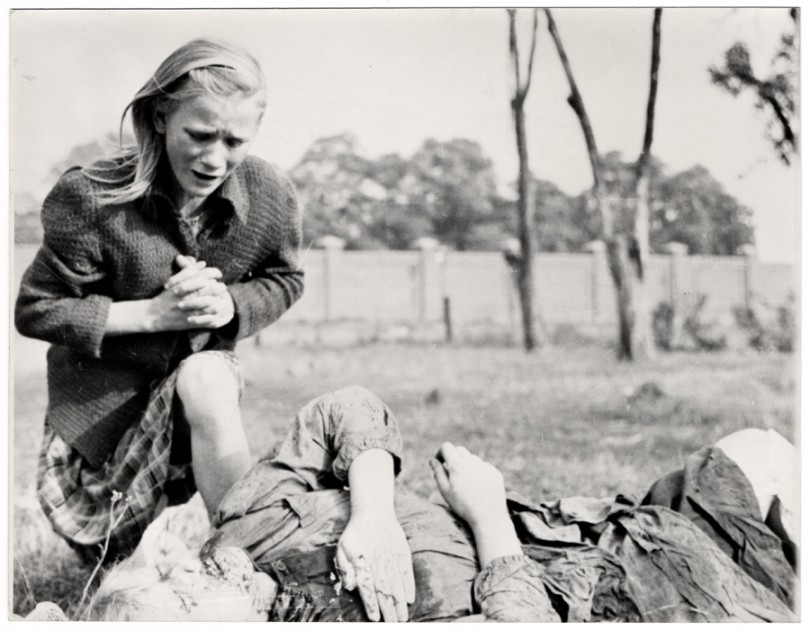












‘What then?” sang Plato’s ghost. “What then?”